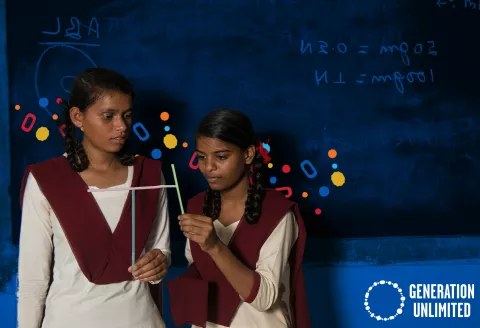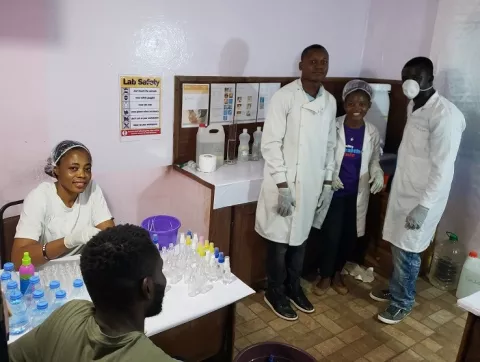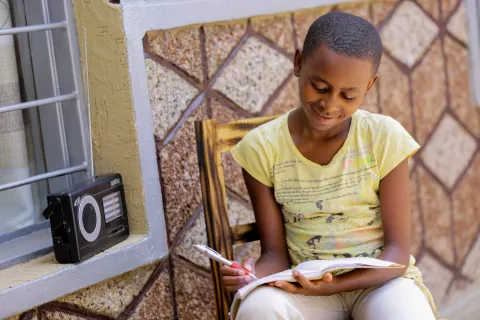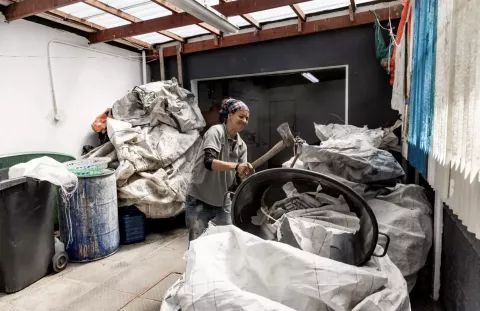Studying in remote rural contexts, in times of COVID-19
A Generation Unlimited with equal challenges and rights
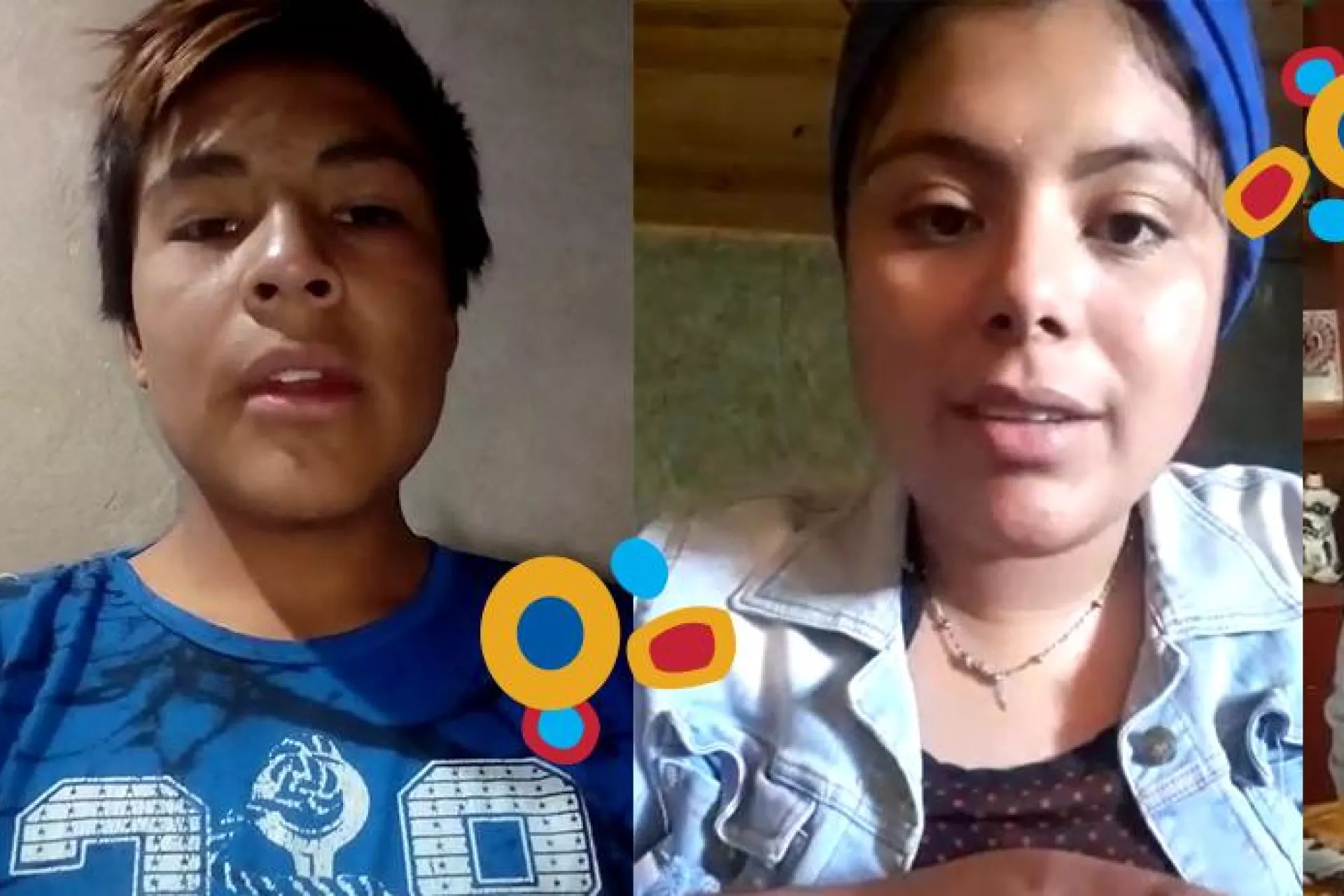
This article was originally published by UNICEF Argentina here.
“Since the quarantine started, I study at home. I mean, my house is like a kind of virtual school”, Noelia studies high (school in Los Gramajo, a remote rural village in the province of Tucumán. “I have two more brothers, and only one mobile phone. At the beginning we fought to see who did the homework first”.
With the coronavirus pandemic and the implementation of mandatory social isolation, the suspension of face-to-face classes was established throughout the country. For the adolescents studying secondary school through technology in classrooms located in rural contexts, this measure became an even greater challenge. Many of them only have internet access at school, where every day they connected with their teachers, and, together with their teachers and community facilitators, they moved forward with their learning remotely.
For these young people, “staying home” does not only mean facing the fears and uncertainty generated by the pandemic: it is also finding new ways to bond with adults, access resources to study and be informed. For them, inclusive, equitable and quality education is also a right.
In the world, millions of adolescents, together with their families and teachers, are learning this new way of studying, reorganizing the contents and adapting the schedules to the different possibilities. The lack of internet in homes is a bottleneck faced by Technology-based rural secondary schools, where currently 1500 adolescents from 6 northern provinces of our country are enrolled. According to data provided by ENACOM, in Argentina, 6.5 out of 10 households had internet access in the third quarter of 2019, and in the northeast and northwest provinces of our country this ratio drops to 4 out of 10 households.
Those who have internet access use their creativity and, for example, manage to download the materials very early in the morning, when there are fewer people connected to the network. "I found the solution to connection problems, by concentrating the time I am on the internet to search for things, and then I ask the teachers" says Damián, who attends high school at Quebraleña, Jujuy. Many students connect with teachers and coordinators through messages on their mobile phones, where they exchange with them their tasks and learnings.
"Hopefully this will soon be over, some of my school mates do not have a mobile phone to do homework, or have no credit" says Mercedes from Ichipuca, Tucumán. Like most of these young people, she asks family and friends to stay home and take care of themselves, "so when we go back to school, we will can all be there". The time at school is a "unique moment" for Mercedes, because of the bonds forged with teachers and other students.
For Marcos, from the Lobatón seat in Jujuy, the nicest thing of staying at home is that "you start to cherish your studies, to value what you have", while Belén values the time she spends with her family in the Casa Colorada seat in Jujuy, "because I share more time with my family and learn new things".
The role of schools in accompanying adolescents during preventive and mandatory social isolation is fundamental, so the National Ministry of Education and the provincial ministries of education, which promote the model of Technology-based rural secondary schools, articulate different strategies to bring educational content closer. "The good thing is that the teachers send us videos, audios or images to better understand what they are teaching us" says Noelia, excited about the teachers' work. The Technology-based rural secondary schools in Salta, for example, uses the community radio as a mediating channel to deliver its course content to students. From there, every day, for an hour, the teachers transmit the contents corresponding to their field of knowledge. Daniela, who is in her first year in Jujuy, is accompanied by her mother Mirta to do her homework. “I advise you to continue studying, beyond the obstacles. We have to stay home, there are many things to learn and do ", Mirta concludes.
From the “El Duraznito” community in Tucumán, Myriam, along with her brother Cristian and her sister Erika, reflects on the union and the greater communication that this new time at home implied for their family. "Life is always fighting, this time we have to hold it from home"
“We will be seeing each other, after this quarantine has passed and we are filled with hugs”.
Marcos' hope does not remain only in Jujuy, it is multiplied by the more than 90 remote rural communities that summon more than 1500 adolescents every day and make them a Generation Unlimited #GeneraciónÚnica.

